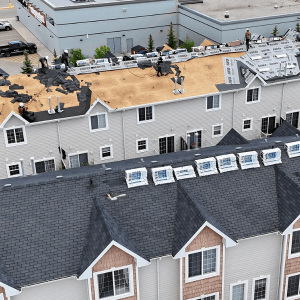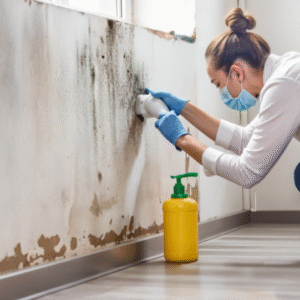When tragedy strikes and an unattended death occurs, the aftermath can be overwhelming for those left behind. Beyond the emotional impact, the physical reality of decomposition poses serious health risks and demands immediate attention. Decomposition cleanup is not just a matter of tidying up it is a specialized process that ensures safety, eliminates harmful pathogens, and restores the property to a livable condition.
This work requires far more than standard cleaning. It demands technical expertise, strict safety protocols, and a compassionate approach that respects the dignity of those affected.
Understanding Decomposition
When a body is left unattended, natural decomposition begins within hours. The body releases fluids and gases that can quickly penetrate flooring, furniture, and walls. Strong odors develop, and the environment becomes a breeding ground for bacteria, viruses, and other dangerous microorganisms.
Decomposition cleanup involves the safe removal of all biohazards, deep disinfection of affected areas, and complete odor elimination. This is essential to restore the property to a condition where it is safe to enter, occupy, or sell.
Why Professional Help Is Essential
Attempting decomposition cleanup without professional training and equipment is extremely unsafe. Exposure to biohazards can lead to serious illnesses, including infections and respiratory issues. Professionals are equipped with:
-
Personal Protective Equipment (PPE) to prevent exposure
-
Specialized disinfectants to kill harmful bacteria and viruses
-
Advanced tools for odor removal and deep cleaning
-
Training in containment to prevent contamination from spreading
Beyond health concerns, decomposition cleanup is emotionally distressing. Professionals provide discreet, respectful service to spare families from additional trauma.
The Step-by-Step Cleanup Process
Decomposition cleanup follows a structured and thorough process to ensure no contamination is left behind:
-
Assessment and Planning – Specialists inspect the property to identify all affected areas and develop a remediation plan.
-
Containment – Barriers and sealants are used to prevent contamination from spreading to other parts of the property.
-
Removal of Contaminated Materials – Carpets, mattresses, furniture, and other porous items that have absorbed fluids are removed and disposed of according to biohazard regulations.
-
Cleaning and Disinfection – Industrial-grade cleaning agents are applied to kill pathogens and sanitize every surface.
-
Odor Elimination – Specialized equipment such as ozone generators and hydroxyl machines neutralize all lingering odors.
-
Final Inspection – The property is inspected to confirm that it meets health and safety standards before it is returned to the family.
Health Risks of Improper Cleanup
Improper or incomplete decomposition cleanup can have serious consequences. Harmful bacteria and pathogens can remain in the environment, causing potential health issues such as respiratory infections, skin irritations, and gastrointestinal illnesses. Odors can seep deep into building materials, making them extremely difficult to remove later.
Additionally, if cleanup is delayed, decomposition fluids can cause structural damage to flooring, walls, and subflooring, leading to expensive repairs and a decrease in property value.
Compassion Matters in Cleanup
While technical expertise is crucial, compassion is equally important in decomposition cleanup. Families dealing with loss need a service that respects their grief and privacy. Professionals who specialize in this work understand the sensitivity of the situation and handle it with empathy, discretion, and respect.
From the moment the team arrives, they work to minimize disruption, communicate clearly, and maintain a quiet, professional presence. This compassionate approach helps families focus on healing rather than the distressing scene.
When to Call for Decomposition Cleanup
Decomposition cleanup is needed in situations such as:
-
Unattended deaths in homes or apartments
-
Natural deaths where the body was not found immediately
-
Hoarding situations where biohazards are present
-
Accidents that result in biohazard contamination
In each case, quick response is vital to protect health and prevent long-term property damage.
Preventing Further Damage
Acting quickly after a death is not only a health precaution but also a financial one. Biohazards can spread through air circulation systems, seep into concrete or wood, and create long-lasting contamination. A professional team can stop the spread, remove the hazards, and restore the space before permanent damage occurs.
Legal and Regulatory Compliance
Decomposition cleanup is regulated by state and federal guidelines. Licensed biohazard cleanup companies follow these rules to ensure proper handling, transportation, and disposal of contaminated materials. This protects both the property owner and the environment.
Attempting to clean such a scene without proper licensing can result in legal consequences and potential liability if others are exposed to hazards afterward.
The Goal: Restoring Safety and Peace
The ultimate goal of decomposition cleanup is not just physical restoration—it is emotional relief. By removing biohazards, eliminating odors, and returning the space to a safe condition, families can begin to heal without the constant reminder of the tragedy.
It is a service rooted in care, respect, and dedication to helping people move forward after life’s most difficult moments.
Final Thoughts
Decomposition cleanup is an essential, highly specialized service that protects health, restores property, and provides peace of mind. It requires immediate action, professional skill, and compassionate handling of a delicate situation. Whether it is an unattended death or another biohazard event, trained experts can make all the difference in ensuring the space is once again safe, clean, and livable.
By trusting experienced professionals, families can focus on what truly matters supporting each other and finding closure—while knowing that the environment has been restored with the utmost care and respect.






